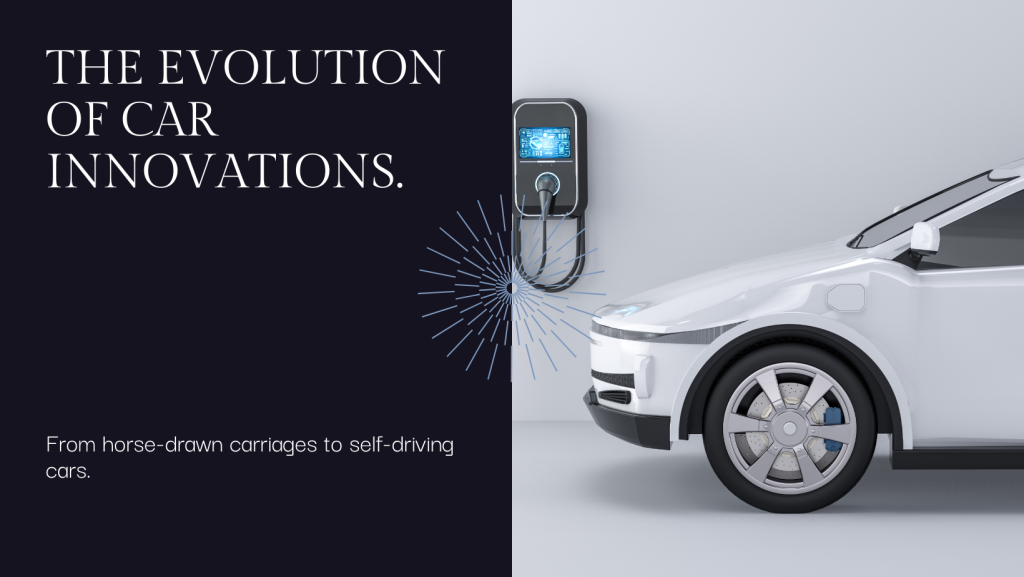Over the years, the automobile sector has experienced a significant transition propelled by ongoing innovation and technical developments. The way we travel and engage with the world around us has changed dramatically as a result of the substantial evolution of cars, which began with the construction of the first autos in the late 19th century and continued with the creation of electric and autonomous vehicles in the 21st.
Creation of the vehicle: The late 19th-century invention of the vehicle transformed transportation and opened the door for further advancements in automotive design. The first gasoline-powered car is said to have been invented by Karl Benz in 1885. Henry Ford’s mass production methods later helped to lower the cost of cars and increase their accessibility for the general population. The automotive industry was founded on these early breakthroughs, which also paved the way for further technological developments in cars.
Technological Developments: As a result of these developments, cars have evolved from simple means of transportation to complex vehicles with cutting-edge features and functionalities. Advancements in safety, performance, and convenience for both drivers and passengers have been made possible by innovations like advanced driver-assistance systems (ADAS), electronic stability control (ESC), and anti-lock braking systems (ABS). Additionally, lighter, more fuel-efficient cars with less of an impact on the environment and pollutants have been made possible by advances in materials science, engineering, and manufacturing.
Autonomous and Electric Vehicles: These two types of vehicles have become the next big thing in automotive technology in recent years. Electric vehicles (EVs) provide greener, more environmentally friendly modes of mobility by replacing internal combustion engines with battery-powered electric motors. In the meantime, autonomous vehicles (AVs) promise safer, more effective transportation systems in the future by utilizing artificial intelligence, sensors, and networking to negotiate roads and traffic without the need for human intervention. At the forefront of these developments are businesses like Tesla, Google, and Uber, which are redefining the future of mobility and pushing the limits of what is feasible in the automotive sector.
Smart technology and linked cars are becoming more and more common, which is revolutionizing driving and creating new opportunities for innovation. Autos are becoming more and more digitally integrated, with features like in-car infotainment systems, navigation apps, cloud-connected services, and vehicle-to-vehicle (V2V) communication and cloud-connected services enabling smooth connectivity, real-time data analysis, and customized experiences for both drivers and passengers. The creation of intelligent transportation systems and smart cities is being fueled by these developments, opening the door to a more connected, efficient, and sustainable future.
To sum up, since the creation of the vehicle, innovation in automotive design, engineering, and technology has advanced significantly, influencing the direction of transportation in the future. The automobile industry is pushing the envelope of what is feasible, from connected cars and smart technologies to electric and autonomous vehicles, completely changing the way we move and engage with our surroundings.




